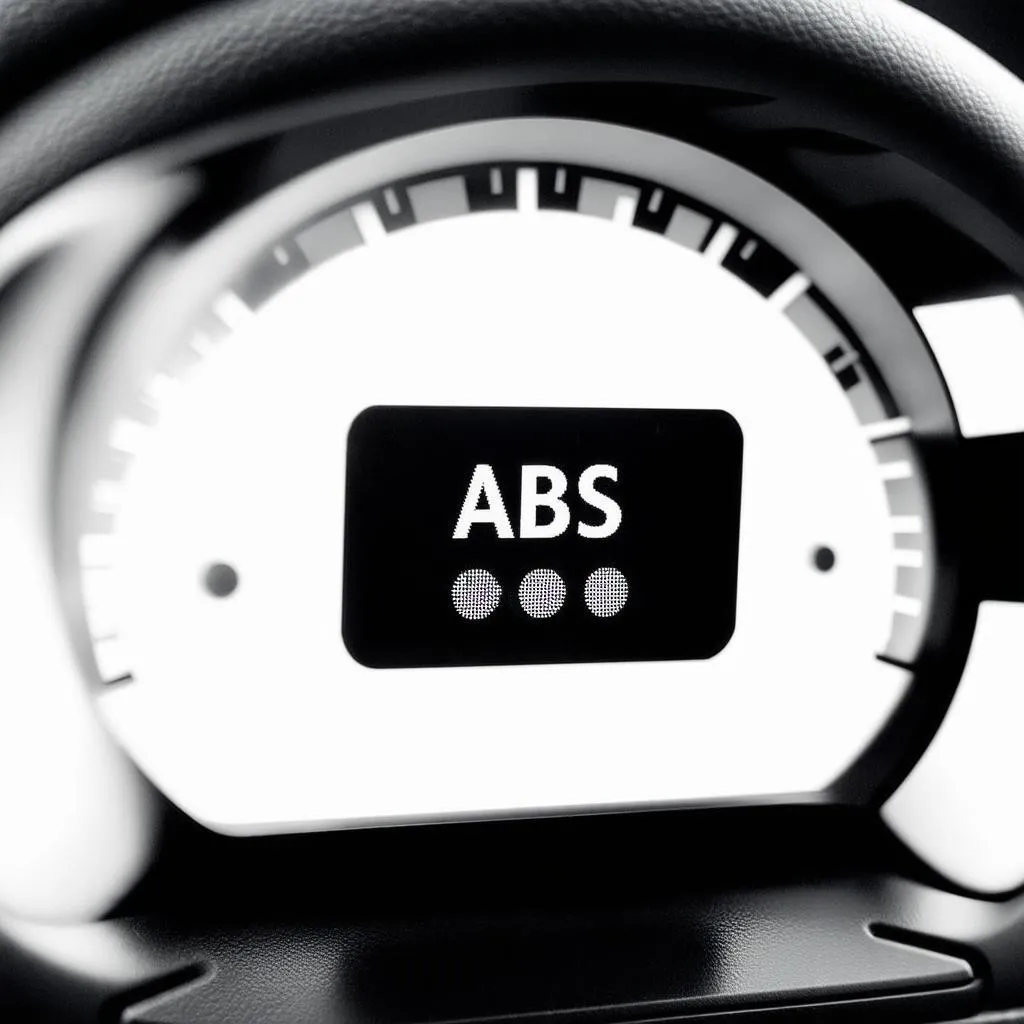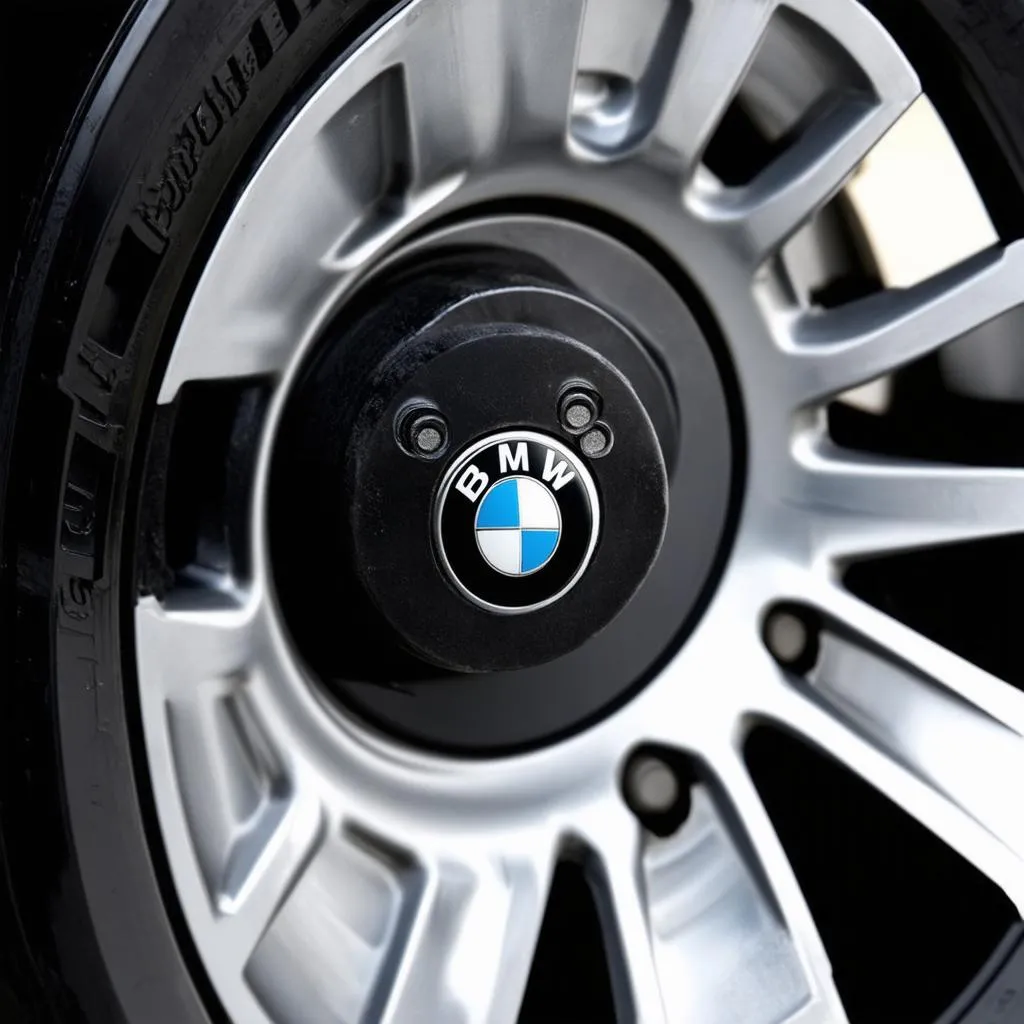ABS in BMW: Understanding the Anti-Lock Braking System in Your Bavarian Beast
You’re cruising down the autobahn, enjoying the thrill of driving a BMW, when suddenly, the dreaded ABS warning light flickers on your dashboard. Your heart skips a beat. What’s going on? Is your car about to become a runaway train? Don’t panic! We’re here to help you understand what ABS is, why it’s important, and how to troubleshoot any potential issues.
What is ABS in a BMW?
The Anti-Lock Braking System (ABS) is an essential safety feature found in almost every modern car, including your beloved BMW. It’s a sophisticated technology designed to prevent your wheels from locking up during sudden braking. Imagine this: you’re driving at a decent speed and suddenly have to slam on the brakes to avoid a collision. Without ABS, your wheels would lock up, causing your car to skid and potentially lose control.
ABS works by using sensors to monitor the speed of each wheel. If a wheel starts to lock up, the ABS system automatically applies and releases the brakes rapidly, creating a pulsing sensation that you might feel through the brake pedal. This pulsing action prevents the wheels from locking up and helps you maintain control of the vehicle, allowing you to steer safely even during emergency braking situations.
ABS in BMW: Importance & Benefits
Now, let’s delve into why ABS is so vital, especially in your BMW:
-
Enhanced Safety: ABS is a game-changer in terms of vehicle control during emergency situations. It prevents skidding and loss of control, potentially reducing the severity of accidents. Imagine a scenario where you’re navigating a winding mountain road in your BMW, and a deer suddenly darts onto the road. Thanks to ABS, you can slam on the brakes confidently, knowing that your car will stay stable and you can maintain control.
-
Shorter Braking Distances: ABS allows you to brake harder and faster without losing control, leading to shorter braking distances compared to a car without this system. This can make a crucial difference in avoiding collisions, especially in emergency scenarios.
-
Increased Confidence: Knowing that your BMW is equipped with ABS can provide you with peace of mind and increased confidence while driving. You’ll feel more secure knowing that even in unexpected situations, your car can handle the braking with enhanced stability and control.
ABS Issues in BMW: Common Symptoms & Causes
While ABS is a reliable technology, it can malfunction just like any other component in your car. Here are some common symptoms of ABS problems in BMWs:
- ABS Warning Light: The most common indicator of an ABS issue is the ABS warning light on your dashboard illuminating. It signifies that there’s a fault within the ABS system.
- ABS Inoperative: The ABS may not function as expected, which can result in your wheels locking up during braking. You’ll feel this as a lack of pulsing sensation on the brake pedal.
- Brake Pedal Vibration: In some cases, the brake pedal may vibrate excessively when applying the brakes, even under normal conditions. This can be a sign of ABS issues.
The causes of ABS problems in BMWs can vary, but common culprits include:
- Faulty ABS Sensors: ABS sensors can get damaged or dirty, leading to inaccurate readings. These sensors are crucial for the system to function correctly.
- Wiring Issues: The wiring connecting the ABS sensors to the control module can experience corrosion, damage, or even short circuits.
- ABS Control Module Problems: The ABS control module itself can fail, leading to issues with the system’s operation. Think of it as the “brain” of your ABS system.
Troubleshooting ABS Issues in BMW
If you suspect that your BMW is experiencing ABS problems, it’s crucial to take it to a reputable mechanic for proper diagnosis and repair. There are several steps you can take to address the issue yourself, but it’s always best to consult a professional.
Here’s a simple guide for DIY troubleshooting:
-
Check the ABS Warning Light: Make sure the warning light is actually on. If it’s intermittent, it might be a temporary issue that resolves itself.
-
Check the Brake Fluid Level: Low brake fluid can sometimes affect ABS functionality. Top off the brake fluid if necessary.
-
Inspect the ABS Sensors: Look for any obvious damage or corrosion on the sensors, located near the wheels.
-
Check the Wiring: Inspect the wiring connecting the ABS sensors to the control module for any signs of damage, corrosion, or disconnections.
Expert Tips from a Renowned BMW Mechanic:
“Always remember, when dealing with ABS systems, it’s crucial to understand the complexity of the technology,” says Dr. Heinz Schmidt, a renowned BMW mechanic based in Munich. “While simple troubleshooting can sometimes help, it’s best to consult a qualified BMW technician to ensure proper diagnosis and repair.”
ABS in BMW: FAQs
Here are some frequently asked questions about Abs In Bmws:
- How can I test the ABS system in my BMW? While there are ways to test the ABS system yourself, it’s not recommended for beginners. It’s best to take your car to a mechanic for a professional inspection.
- Can I drive my BMW with a faulty ABS system? It’s not advisable to drive with a faulty ABS system. While your car might still function, it will lose the crucial safety benefits provided by ABS.
- How expensive is it to repair a faulty ABS system in a BMW? The cost of repairing a faulty ABS system can vary depending on the specific issue, the model of your BMW, and the labor costs in your area. It’s best to get a quote from a mechanic to estimate the repair costs.
ABS in BMW: Related Information
If you’re interested in learning more about your BMW, you might also find these articles helpful:
- Ignition Coil BMW 6-Cylinder Firing Order
- BMW E46 Floor Mats
- BMW 75k Service
- BMW M3 Specialists Birmingham
- Power Steering Fluid for a BMW
ABS in BMW: Call to Action
If you’re facing issues with your BMW’s ABS system, don’t hesitate to reach out to our team of experts. We can help you diagnose and repair any problems you might be experiencing. Contact us via Whatsapp: +84767531508 and our BMW specialists will be happy to assist you 24/7.
ABS in BMW: Conclusion
The ABS system is a critical safety feature in your BMW. By understanding its importance, common issues, and troubleshooting steps, you can ensure your car remains safe and reliable. Remember, when in doubt, consult a qualified BMW mechanic for professional diagnosis and repair.
Please feel free to leave a comment below if you have any questions or share your experiences with ABS in your BMW. We’re eager to hear from you!
 bmw abs warning light
bmw abs warning light
 bmw abs sensor
bmw abs sensor
 bmw mechanic
bmw mechanic
